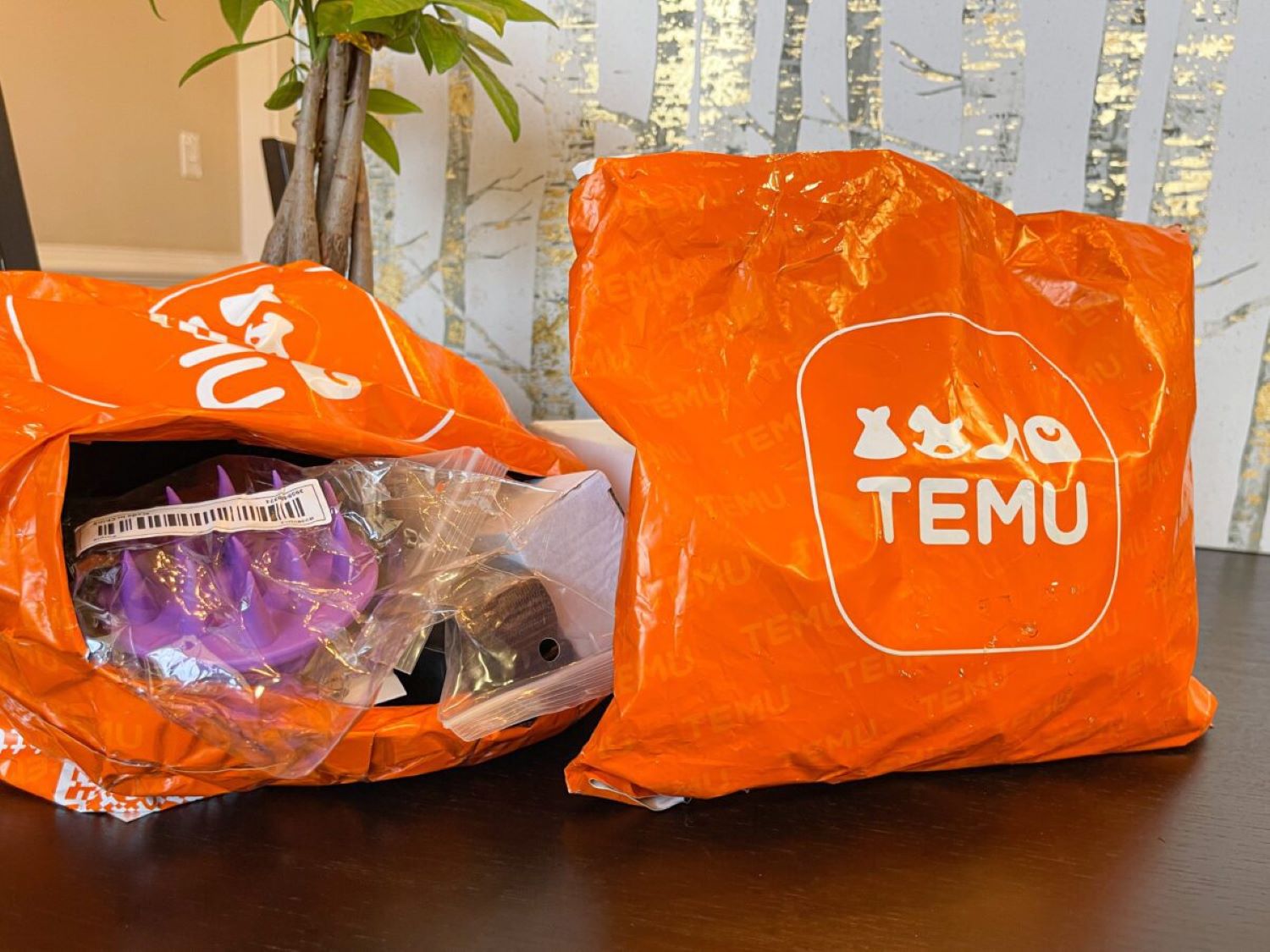Suspicious Temu – When the Evil Conspiracy Is Sugarcoated
It’s hard to believe that now you can snatch necklaces for just a buck, sunglasses for a mere $2, and humidifiers at a mere $3 – talk about jaw-dropping deals! Temu is all about providing an unforgettable shopping experience, offering everything you can imagine for less than $25. With all those delicious deals, people has been buying into Temu as a worth to use app, but things just flipped on its head.
Seems to be innocent, now the shopping site has just shown that it has the power to steal your personal information without realizing. The widely-used Temu app is under scrutiny from the U.S. government for alleged data security risks. Numerous users have voiced concerns, citing instances of stolen credit card information and other unsettling incidents.
In order to understand about how Temu has been harvesting users data, we have to get sharp on its origin.
The Offshoot of a Chinese E-commerce Company
Temu, the U.S. offshoot of the well-established Chinese e-commerce giant Pinduoduo Inc., follows in the footsteps of its successful parent company that has been catering to the Chinese market since 2015.
Pinduoduo distinguished itself in China by providing significantly discounted products directly from vendors to budget-conscious consumers. To extend its reach to the American audience, Pinduoduo introduced Temu and set up its headquarters in downtown Boston.
The Chinese e-commerce platform Temu has emerged as a one-stop shopping destination that knows no boundaries. With products available at dirt-cheap prices, Temu has quickly become the most downloaded app in the United States, surpassing Amazon and Walmart.
As stated by Temu, Just like Pinduoduo, their low prices are possible because they have a deep network of merchants, logistic partners, and an established ecosystem of suppliers. Pinduoduo, Temu’s sister company in China, was originally designed to use social shopping and group buying to score better prices for consumers. It’s all about creating affordability through strong partnerships and innovative shopping approaches.
In a nutshell, they cut out the middleman, pool together a bunch of orders of the same product from the masses, and place a really large order at really low prices by leveraging economies of scale.
However, Steve Chou, an e-commerce entrepreneur has an opposite view on what Temu has claimed.
He stated, “But personally, I don’t buy it, and here’s why: In 2022, most of Pandora’s revenue came from online marketing services, not e-commerce.”
He continued, “In fact, Pinduoduo sells advertising services to its network of merchants and not so much physical products. Merchants can bid for keywords that match product listings and appear as ads on Pandora’s platform. Pinduoduo also charges merchants a commission on each item sold through its platform.”
Steve Chou further clarified that Pinduoduo earns its revenue primarily from transaction fees and merchandise sales. Surprisingly, a significant chunk—72 percent—comes from online marketing services, with transaction fees contributing 18 percent and merchandise sales making up the remaining 10 percent. Essentially, both Pinduoduo and its sister company Temu are heavily involved in data collection business.
Temu operates as a subsidized loss leader, aiming to capture market share and gather valuable information for selling marketing services. This strategic approach echoes the practices of companies like Amazon, Uber, and Lyft, which have employed similar tactics in their respective industries.
Now, according to Joseph’s Kazukanis, there’s absolutely no way Teemu runs a profitable retail business. They are effectively buying market share and hoping in the years to come that market share will stick.
Teemu is not really an e-commerce company; they are an information company, and they are following in the exact same footsteps of their sister company Pinduoduo in China.
Relentless Marketing Touch that Gets them Everywhere
One of the key factors that contributed to Temu’s rapid increase in popularity is its effective marketing strategy. The platform’s approach involved running an extensive advertising campaign on platforms such as Facebook and Instagram.

Since its launch in September, by February 2023, these platforms have showcased over 13,000 ads. To entice more people into making purchases, the platform actively promotes daily limited-time offers that vanish shortly after their introduction. The goal is to encourage customers to catch them while they are still available.
Temu has achieved widespread recognition among U.S. consumers, largely thanks to its pivotal collaboration with the NFL.
This partnership featured a high-impact 30-second video titled ‘Shop Like a Billionaire.’ The audacious move was quite unconventional for a “young platform,” especially given the hefty price tag associated with Super Bowl ads, often soaring into the millions of USD.
The gamble, however, proved to be entirely worthwhile. In the subsequent days, the platform experienced a remarkable +43% surge in downloads and a noteworthy +23% increase in daily active users, all stemming from the evening of the Super Bowl match.
You’ve probably seen lots of influencers promoting Temu, showcasing multiple products from Temu. For example, “I built my sister’s dream den with Temu products”, and “my first Temu haul” involved buying a thousand dollars of junk from Teemu, the “all Teemu gaming setup.”
“It’s like the new Teemu hauls version of Wish hauls, except the only difference is these hauls are sponsored by Temu. Download Teemu and get 50% off and a hundred dollar coupon. And this is a big part of their business strategy – their Temu influencer program,” Said Youtuber The Asher Show.
Check out Teemu’s TikTok – every post is people buying products and unboxing them. It’s a lively display of users sharing their experiences with the platform.
“Now, if you look online, you’ll notice that most people aren’t paying that much money at all for their products because Temu has an ingenious marketing campaign that pays you cash for referring your friends to sign up,” said Steven Chou
He continued, “The more installs of the app you recommend, the more money that you make.”
One thing about Temu is the suspicious gush among people that makes Steve Shou casting doubt on the authenticity of positive reviews and comments about Teemu online. Despite publishing a video about Teemu with overwhelmingly positive comments, he finds it unusual for people to gush about a service, especially without any negative feedback.
Steve questions the credibility of the positive sentiments, hinting at the possibility of influence or manipulation in the portrayal of Teemu’s platform.
“So, this leads me to believe that they have hired people to leave positive comments about their platform on all major social media outlets.” Said Steve Chou.
Well, hire people to give positive feedback is a part of a marketing strategy, it’s not that evil. However, what makes Temu appears as the threat is its suspicious activity to users data.
When the Gush Turned into Disgust – the Perfect Disguise for Cyber Criminals
Certainly, there is a rising worry among many individuals regarding Teemu’s potential involvement in unauthorized data collection or even the theft of user information. And we even have some incidents to back it up.
TikToker ang & phoe (@angelikapheveya) claims that after she gave her information to the Shanghai-based online marketplace, her bank account was drained of $400.
The creator’s video—which has amassed 10.2 million views since it was posted to TikTok—explains how Temu slowly drained her account with a series of small withdrawals. “They took $400 dollars, but it was in like very small portions, [over the course of] two months,” she says.
“So, like, once a day, they would take out like $3, so you don’t catch onto it,” she continues.
The TikToker got a bunch of sketchy warnings from her bank about suspicious activity, but surprisingly, she didn’t fall for it. She was like, “Nah, I’m not clicking that link. They just want to hack me or something.”
Later on, though, she started thinking maybe those emails were legit because she couldn’t buy anything, and her card wasn’t cooperating. According to her, Temu might be behind the whole debit card mess, claiming they sold her info on the black market. She even got this three-page document with charges from different countries, saying it’s because those black market folks use different IP addresses or whatever.
In her caption, she’s like, “I think this went down through TEMU, but honestly, it could’ve been any app where I punched in my details.”
In another incident, TikTok user Dimples Queen (dimplesqueennini) posted a video alleging Temu stole her identity.
Dimples Queen says she posted her video, which has amassed more than 1.2 million views, to spread awareness about the dangers of online shopping.
Dimples Queen had a rough time after ordering from Temu. Turns out, her credit card info got snagged, and American Express had to step in with warnings about fishy charges. In her video, she points out four charges she didn’t make, suspecting Temu might be the culprit. But here’s the kicker – she didn’t recognize the company behind the charges, and they left a phone number, which she smartly avoided calling, thinking it was a ploy for more info.

This isn’t the first time TikTok users expressed concerns about Temu. Like Shyla, TikTok name ShyShy011 said, “I’m going through the same thing. I don’t know if it was because of Teemu, but the situation happened right after I made some purchases from Teemu. I was already skeptical about the website, but I’ve heard good things about it.”
She added, “However, I checked my account last Friday, and I was at one dollar. I called my bank immediately; it didn’t happen slowly or with monthly charges—it all happened at once. They broke it down to $23.51. My bank didn’t notify me about anything, and the next thing I knew, $500 was gone. I had just gotten paid, so luckily, I paid my bills. But this is not a joke; you have to be careful.”
Until now, we’ve only got a couple of folks sharing their experiences, claiming it happened to them. It might just be a coincidence, but looking at Temu privacy and cookie policy to see What is the personal information that they collect.
Overharvesting Data – Temu Suspicious Play Behind the Curtain
When you go through Temu’s privacy and cookie policy, they claim that they collect your contact data, demographic information, profile data, communications, transactional data, marketing data, user-generated content such as profile pictures, photos, images, videos, audio recordings.
Now, what does this really mean? Basically, Temu collects data from your sessions, search history, and monitors your activity and time on site. If you log in using social media, it collects information contained in your social media profile as well.
But can it really gather more than that, and is all of your data making it back to China?
To elaborate on this problem, Steve Chou said,
“First off, even though it says that Temu is based in Boston, Massachusetts, which implies that Temu is an American company, it really isn’t. Temu’s parent company, Pinduoduo Holdings, is a Cayman Islands company with subsidiaries registered in China.
He added, “So basically, Temu is a Chinese company. Now, I definitely cannot say whether Temu is passing your data back to China, but I’m willing to bet that the answer is yes because PDD Holdings, Temu’s owner, doesn’t have the best track record.”
As reported by CNN, Pinduoduo, Temu’s sister company, faced accusations of harboring malware that exploited vulnerabilities within the Android operating system. Insiders from the company disclosed that these exploits were allegedly employed to spy on both users and competitors, purportedly with the intention of boosting sales.
According to Mikko Hypponen, Chief Research Officer with Secure, he was quoted as saying, “We haven’t seen a mainstream app like this trying to escalate their privileges to gain access to things that they’re not supposed to gain access to. This is highly unusual and it’s pretty damning for Pinduoduo.”
Google also suspended Pinduoduo from its Play Store in March of 2023, citing malware identified in various versions of the app. An ensuing report from Bloomberg said a Russian cybersecurity firm has also identified potential malware in the app.

These vulnerabilities enable the app to obtain complete access to your contacts, calendars, photo albums, as well as your social media accounts, chats, and texts—essentially granting access to almost everything on your phone.
As per CNN reports, the company, through extensive data collection on user activities, crafted a detailed portrait of users’ habits, interests, and preferences. This enabled Pinduoduo to enhance its machine learning model, providing more personalized push notifications and ads. The goal was to attract users to open the app and make purchases.
Is Temu A Spyware App Designed To Spy On Americans From China?
It’s confirmed that the Temu app extensively collects data, although there’s currently no evidence that it does so. However, Pinduoduo, its parent company, has shown the capability to gather data.
Yet, Teemu is a legitimate company, and its parent company, Pinduoduo, is publicly traded on the NASDAQ. Despite mixed online reviews, it’s a genuine company that delivers real goods.
What’s more, The Teemu Protection Program covers items that don’t match a listing description, items that arrive damaged, and items that are lost in the mail. Reports have indicated that getting a refund from Teemu can sometimes take a long time, but it does, in fact, happen.
Douglas Schmidt, an expert in security and privacy from Vanderbilt, notes that Temu’s data and privacy practices are typical, involving substantial user data collection for targeted ad purposes. He emphasizes that the real impact of Temu may not be primarily on privacy concerns but rather on the potential pressure it puts on American companies and workers.
If more and more American consumers flock to Temu to buy cut-rate goods, that could pressure Amazon and other competitors to slash their prices too, which would affect wages, Schmidt argued.
“This is an interesting example of the manufacturing base in China getting sufficiently sophisticated that it no longer feels like it needs to go through distributors. They’re selling directly to consumers. And there are a lot of people who are hurting economically and looking for a bargain,” he said.
He added, “This is obviously going to put pressure on producers of goods to further slash their cost basis and profit structure—which could have the consequence of further eroding domestic manufacturing in the U.S.”









